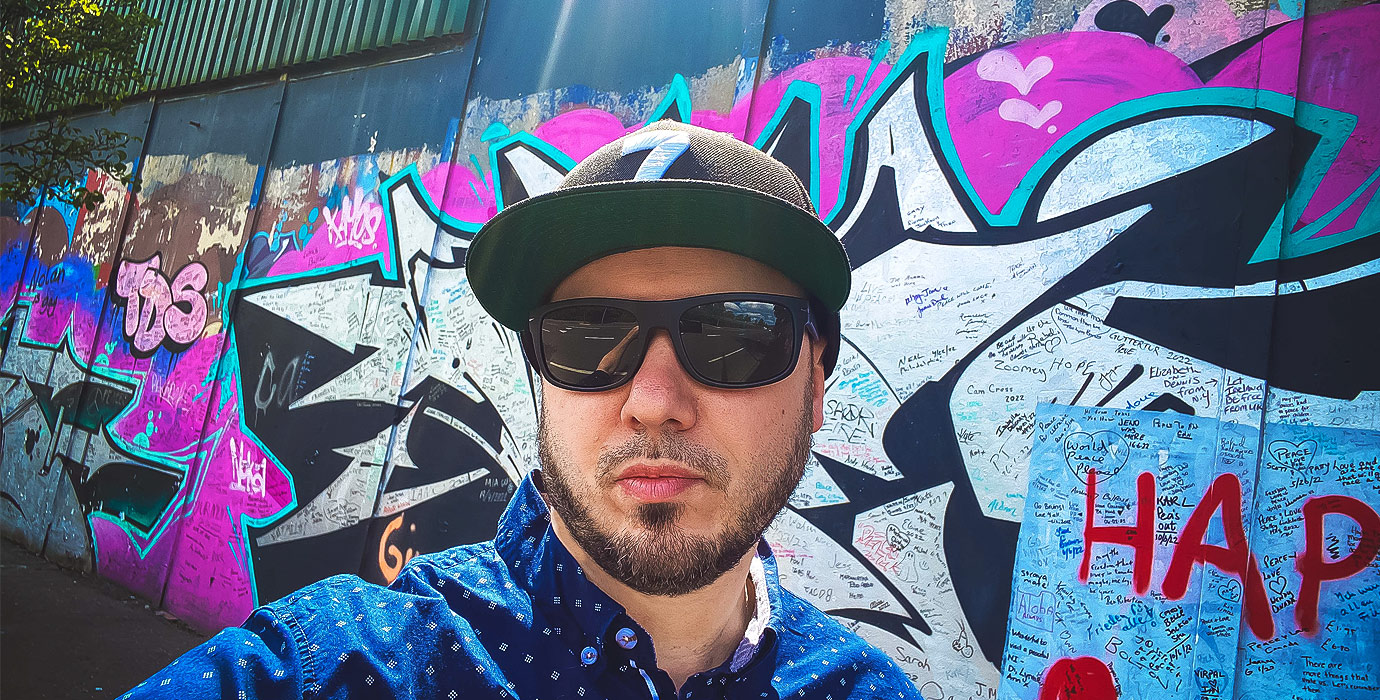When I was in seminary, I took an entire class on conflict resolution in churches. Unfortunately, I don't recall very much from that class other than writing the final paper and one very significant exchange I had with the professor. Like a lot of classes at my seminary, the professor was also a local full-time pastor. He was nearing retirement age and had amassed decades of invaluable ministry experience. But during one of our break-time conversations, he told me he didn't observe a weekly day of rest. This shocked me. I remember having just read the book Sabbath in the City: Sustaining Urban Pastoral Excellence by Bryan Stone and Claire Wolfteich for another class and thought it was essential that pastors rest weekly. I lent the book to my professor and urged him to consider taking up the practice. Later in the semester, when he returned the book, he thanked me.
 I'm aware that everyone who reads this may not be a clergy person. I'm not sure it's all that different for others. Healthy rhythms of rest are an important practice for all human beings. That's not just my opinion; it's science!
In a recent episode of Hidden Brain, a podcast I sometimes listen to, the subject being explored was a phenomenon in the brain that is a response to scarcity called "Tunnel Vision." When the brain is deprived of something, it's all we can think about. A hungry person’s brain is aware of the scarcity of sustenance, and the researchers in the episode say the brain’s response is like alarms going off: “Do you realize we're hungry? Have I mentioned we're hungry? We're hungry. And it just keeps calling out to you.” This scarcity alarm effect can happen as a result of any fear of scarcity. Researchers in the episode quickly found a similarity between the brain’s response to hunger and the brain’s response to poverty.
These researchers discovered a way to test the effect of scarcity and abundance on the brain. They conducted a study of sugarcane famers in India, who are paid once a year. They’re actually the perfect people to observe, because in the same exact population you have people suddenly experiencing a windfall of money and then suffering poverty in a short span of time. “You have the same group of people who are poor one moment and rich the next.” So they observed the farmer’s long-term thinking when they had no money and when they had plenty of money.
I'm aware that everyone who reads this may not be a clergy person. I'm not sure it's all that different for others. Healthy rhythms of rest are an important practice for all human beings. That's not just my opinion; it's science!
In a recent episode of Hidden Brain, a podcast I sometimes listen to, the subject being explored was a phenomenon in the brain that is a response to scarcity called "Tunnel Vision." When the brain is deprived of something, it's all we can think about. A hungry person’s brain is aware of the scarcity of sustenance, and the researchers in the episode say the brain’s response is like alarms going off: “Do you realize we're hungry? Have I mentioned we're hungry? We're hungry. And it just keeps calling out to you.” This scarcity alarm effect can happen as a result of any fear of scarcity. Researchers in the episode quickly found a similarity between the brain’s response to hunger and the brain’s response to poverty.
These researchers discovered a way to test the effect of scarcity and abundance on the brain. They conducted a study of sugarcane famers in India, who are paid once a year. They’re actually the perfect people to observe, because in the same exact population you have people suddenly experiencing a windfall of money and then suffering poverty in a short span of time. “You have the same group of people who are poor one moment and rich the next.” So they observed the farmer’s long-term thinking when they had no money and when they had plenty of money.
Banner photo by Aaron Burden on Unsplash

A Tragically Beautiful Metaphor
In 2010, Independent Lens released a documentary series on PBS entitled The Calling that followed the lives of women and men called to become professional faith leaders in their respective faith traditions, ranging from Evangelical Christian ministers to Roman Catholic priests, Muslim imams to Jewish rabbis. There's a set of scenes in that documentary series that absolutely haunts me when I think about healthy rhythms of rest for clergy. In the first scene, the film makers follow Muslim imam, Bilal Ansari, to the space where his grandfather's church once stood. There he reminisces with a cousin, who happened to be driving by, about when they were kids and they led worship gatherings for youth at that church. Later in the documentary series, Bilal is taking a class in seminary and the subject of healthy boundaries around ministry comes up. The professors shares that many clergy are encouraged to think of themselves as "on call" 24/7. This prompts Bilal to share about his grandfather and grandmother, and the fate of their church. I don't necessarily agree with the professor that "nothing remained." As Bilal himself said to his cousin, "The foundation that was put in us never leaves." However, I agree with the professor that the empty lot does represent a tragically beautiful metaphor.Know Your Role
We ministers can easily succumb to the delusion that the ministry is all up to us. But the reality is that we are role players in God's grand performance. As brilliant and fearless as the apostle Paul/Saul was, he recognized his limitations. He knew that he only played one role in peoples lives, and that others had gone before him and others would come after him.I planted the seed, Apollos watered it, but God has been making it grow. So neither the one who plants nor the one who waters is anything, but only God, who makes things grow. The one who plants and the one who waters have one purpose, and they will each be rewarded according to their own labor. For we are co-workers in God’s service; you are God’s field, God’s building. (1 Corinthians 3:6-9, NIV)As a minister, recognizing that you are but one part of a larger process which God is overseeing is liberating. Our job is to keep showing up, remain faithful, pursue excellence, but leave the results to God. In my own life, I deeply value my weekly day of rest. For me, it's an exercise of faith. Each week I'm reminded that the world turns without me. And I'm reminded that there's more to think about than just the trappings of ministry. I love having unstructured time to indulge whims. Maybe I'll go see a movie. Maybe I'll read a book. But, most of all, I try to be attentive to my inner life. What is it that I'm in danger of idolizing because I'm scared to lose it? What is it that my heart is longing for that may point to God's will for me.
Tunnel Vision
 I'm aware that everyone who reads this may not be a clergy person. I'm not sure it's all that different for others. Healthy rhythms of rest are an important practice for all human beings. That's not just my opinion; it's science!
In a recent episode of Hidden Brain, a podcast I sometimes listen to, the subject being explored was a phenomenon in the brain that is a response to scarcity called "Tunnel Vision." When the brain is deprived of something, it's all we can think about. A hungry person’s brain is aware of the scarcity of sustenance, and the researchers in the episode say the brain’s response is like alarms going off: “Do you realize we're hungry? Have I mentioned we're hungry? We're hungry. And it just keeps calling out to you.” This scarcity alarm effect can happen as a result of any fear of scarcity. Researchers in the episode quickly found a similarity between the brain’s response to hunger and the brain’s response to poverty.
These researchers discovered a way to test the effect of scarcity and abundance on the brain. They conducted a study of sugarcane famers in India, who are paid once a year. They’re actually the perfect people to observe, because in the same exact population you have people suddenly experiencing a windfall of money and then suffering poverty in a short span of time. “You have the same group of people who are poor one moment and rich the next.” So they observed the farmer’s long-term thinking when they had no money and when they had plenty of money.
I'm aware that everyone who reads this may not be a clergy person. I'm not sure it's all that different for others. Healthy rhythms of rest are an important practice for all human beings. That's not just my opinion; it's science!
In a recent episode of Hidden Brain, a podcast I sometimes listen to, the subject being explored was a phenomenon in the brain that is a response to scarcity called "Tunnel Vision." When the brain is deprived of something, it's all we can think about. A hungry person’s brain is aware of the scarcity of sustenance, and the researchers in the episode say the brain’s response is like alarms going off: “Do you realize we're hungry? Have I mentioned we're hungry? We're hungry. And it just keeps calling out to you.” This scarcity alarm effect can happen as a result of any fear of scarcity. Researchers in the episode quickly found a similarity between the brain’s response to hunger and the brain’s response to poverty.
These researchers discovered a way to test the effect of scarcity and abundance on the brain. They conducted a study of sugarcane famers in India, who are paid once a year. They’re actually the perfect people to observe, because in the same exact population you have people suddenly experiencing a windfall of money and then suffering poverty in a short span of time. “You have the same group of people who are poor one moment and rich the next.” So they observed the farmer’s long-term thinking when they had no money and when they had plenty of money.
The results were stunning. We found a huge difference. So we found that post-harvest, when they're well-off, they have much more impulse control. Farmers who were rich tended to think about things that would help them over the long term. This matched other research that shows, for example, that farmers who are well-off tend to weed their fields more regularly than farmers who are poor. Farmers who were poor mostly focused on how to make it to next week, short-term thinking. To be clear, it's not that poor people focus on immediate needs because that's all they want to think about. It's all they can think about. Scarcity captures the mind[…] In fact, scarcity can actually lower how you perform on an IQ test.This episode ended with the amazing story of a women named Katie who was a resident at a hospital and worked so hard she neglected her life outside of work, she even neglected her health. It got so bad, she was afraid she would make a mistake that could get someone hurt. So she reported herself and checked herself into a residential treatment program where she learned to practice a weekly rhythm of rest. As I listened to her describe the wisdom she’d gleaned from her experience, I couldn’t help but hear the wisdom of Scripture and Jesus calling to us. This episode of Hidden Brain confirms that rhythms of rest replenish our brain’s capacity and that scarcity is a thief that steals capacity from us.
Ask yourself how you are creating healthy rhythms of rest for yourself.
Banner photo by Aaron Burden on Unsplash


